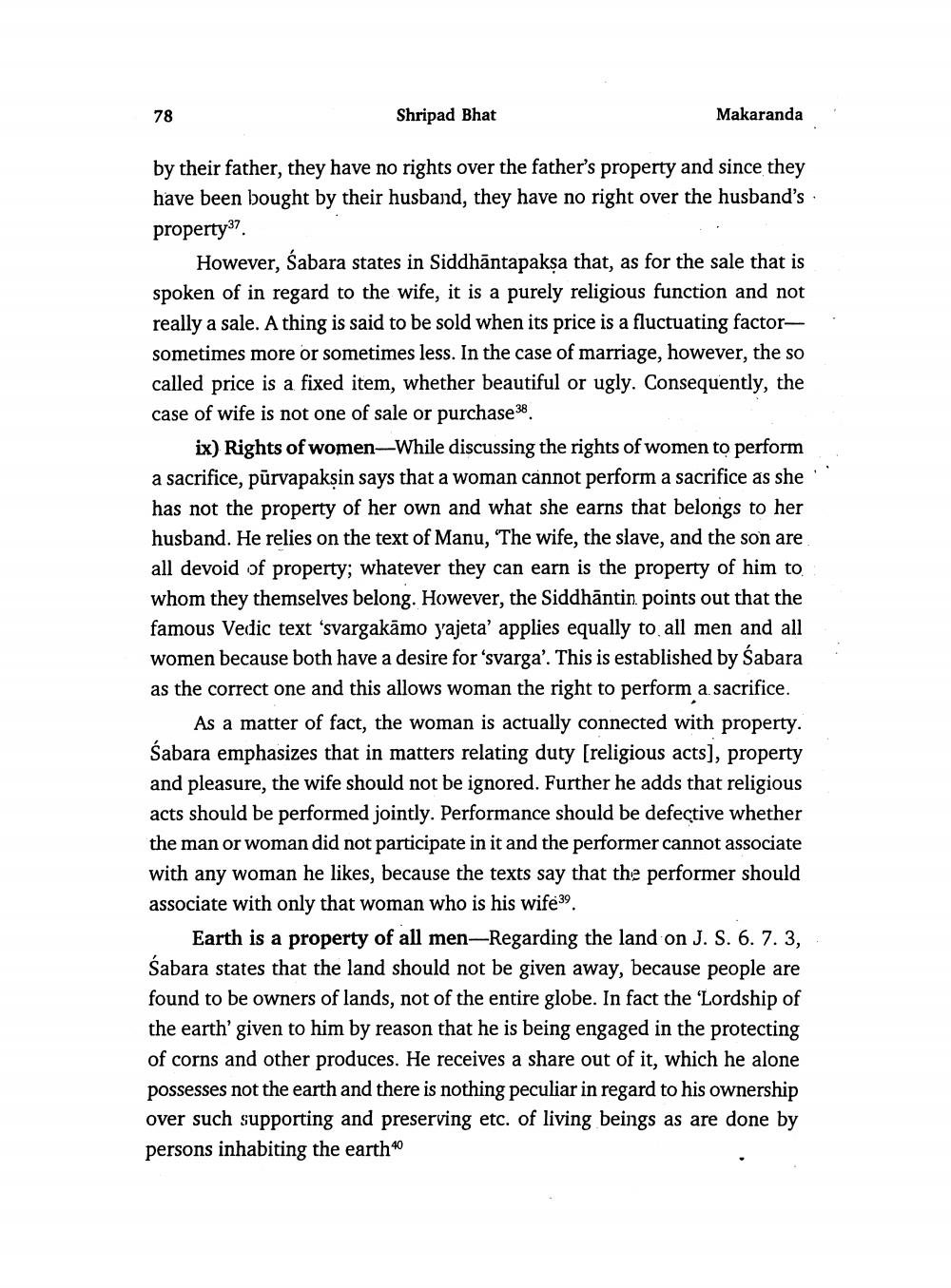________________
78
Makaranda
Shripad Bhat
by their father, they have no rights over the father's property and since they have been bought by their husband, they have no right over the husband's property
However, Śabara states in Siddhäntapaksa that, as for the sale that is spoken of in regard to the wife, it is a purely religious function and not. really a sale. A thing is said to be sold when its price is a fluctuating factorsometimes more or sometimes less. In the case of marriage, however, the so called price is a fixed item, whether beautiful or ugly. Consequently, the case of wife is not one of sale or purchase.
ix) Rights of women-While discussing the rights of women to perform a sacrifice, purvapakṣin says that a woman cannot perform a sacrifice as she has not the property of her own and what she earns that belongs to her husband. He relies on the text of Manu, The wife, the slave, and the son are all devoid of property; whatever they can earn is the property of him to whom they themselves belong. However, the Siddhantin points out that the famous Vedic text 'svargakāmo yajeta' applies equally to all men and all women because both have a desire for 'svarga'. This is established by Sabara as the correct one and this allows woman the right to perform a sacrifice.
As a matter of fact, the woman is actually connected with property. Śabara emphasizes that in matters relating duty [religious acts], property and pleasure, the wife should not be ignored. Further he adds that religious acts should be performed jointly. Performance should be defective whether the man or woman did not participate in it and the performer cannot associate with any woman he likes, because the texts say that the performer should associate with only that woman who is his wife".
Earth is a property of all men-Regarding the land on J. S. 6. 7. 3, Sabara states that the land should not be given away, because people are found to be owners of lands, not of the entire globe. In fact the 'Lordship of the earth' given to him by reason that he is being engaged in the protecting of corns and other produces. He receives a share out of it, which he alone possesses not the earth and there is nothing peculiar in regard to his ownership over such supporting and preserving etc. of living beings as are done by persons inhabiting the earth"




